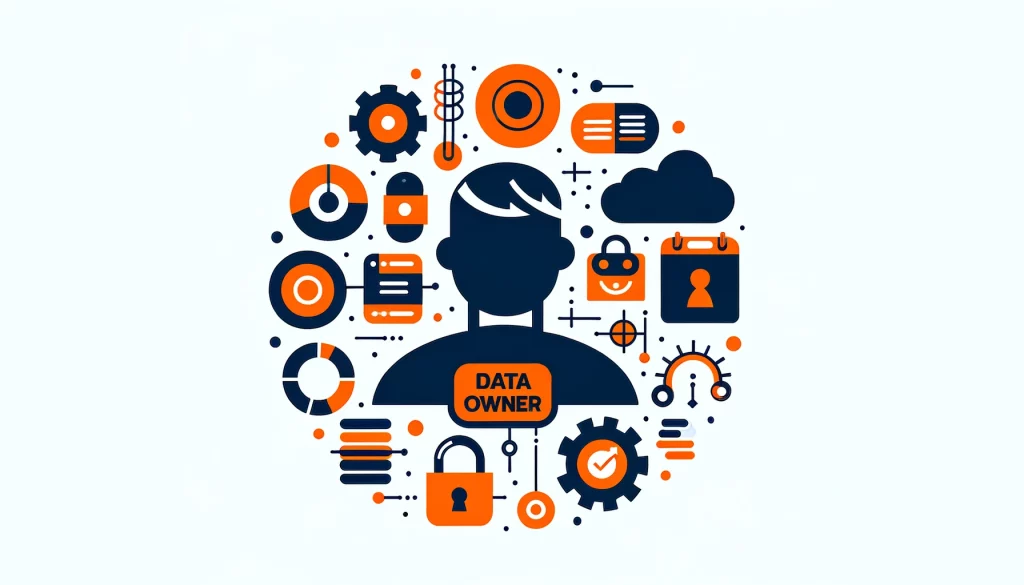
Data Owner: Roles, Responsibilities, and Security in Data Governance

Introduction
In today’s data-driven world, organizations collect, store, and process vast amounts of information. To protect and manage this asset, it’s important to clearly define roles and responsibilities in the data governance framework. One of the key roles in this structure is the Data Owner.
This article will explain who a Data Owner is and their characteristics. Also discussed will be how they handle data and the security concerns associated with their role. We will also provide examples to illustrate the responsibilities in practice.
What is a Data Owner?
A Data Owner is someone in an organization who is responsible for managing and controlling specific datasets. They make sure the data is correct, complete, and used according to the organization’s rules and regulations. The Data Owner is important in deciding the reason, situation, and significance of the data they control.
Features of a Data Owner
- Authority: Decide how to use, access, and share their data. They establish policies and procedures to govern the data lifecycle.
- Accountability: Data Owners are accountable for the quality, accuracy, and security of their assigned datasets. They must ensure that they use the data ethically and in compliance with applicable laws and regulations.
- Collaboration: Data Owners work with data stewards, custodians, and business users to establish data requirements and quality standards. They also help facilitate access to the data.
How Data Owners Work with Data
- Data Classification: Data Owners classify their datasets based on sensitivity, criticality, and business value. They determine the appropriate level of protection and access controls for each data category.
- Data Quality Management: Data Owners establish data quality standards and implement processes to ensure the accuracy, completeness, and consistency of their datasets. They regularly review and validate the data to maintain its integrity.
- Data Access Control: Data Owners define access policies and grant permissions to users based on their roles and responsibilities. They ensure that only authorized individuals can access, modify, or delete the data.
- Data Lifecycle Management: Data Owners oversee the entire lifecycle of their datasets, from creation to retirement. They establish retention policies, archival procedures, and data disposal methods to comply with legal and regulatory requirements.
Security Aspects of Data Ownership
- Data Protection: Data Owners are responsible for implementing appropriate security measures to protect their datasets from unauthorized access, breaches, and misuse. They work with IT security teams to establish technical controls, such as encryption, access logs, and monitoring systems.
- Compliance: Data Owners need to make sure their datasets follow laws like GDPR, HIPAA, and PCI-DSS. They collaborate with legal and compliance teams to assess and mitigate risks associated with data processing.
- Incident Response: Data Owners play a crucial role in responding to data breaches or security incidents. They assist in identifying the affected datasets, assessing the impact, and implementing remediation measures.
Examples of Data Owner Responsibilities
- Customer Data: A Data Owner in the marketing department is responsible for managing customer data. They make sure to get permission before collecting data, keep it safe, and only use it for the right reasons. They also establish data sharing agreements with third-party vendors to protect customer privacy.
- Financial Data: The finance department’s Data Owner oversees the organization’s financial datasets. They implement strict access controls to safeguard sensitive information, such as bank account details and transaction records. They regularly review audit logs to detect and investigate any suspicious activities.
- Employee Data: The human resources Data Owner is accountable for managing employee records, including personal information, performance evaluations, and benefits data. They ensure that they store the data in compliance with labor laws and privacy regulations. They also establish procedures for securely sharing employee data with authorized parties, such as payroll processors.
Conclusion
Data Owners play a crucial role in managing, protecting, and using an organization’s data effectively. By establishing clear ownership, defining policies, and implementing security measures, Data Owners contribute to the overall data governance framework. They collaborate with various stakeholders to maintain data quality, compliance, and access control.
As data grows, Data Owners play a crucial role in making decisions based on data while protecting sensitive information. Their responsibilities are vital for privacy and security.
To effectively manage and protect data, organizations can leverage exceptional and flexible tools like those offered by DataSunrise. DataSunrise provides a comprehensive suite of solutions for data security, audit rules, masking, and compliance. Our experts can show you how our tools improve data governance through online demonstrations. Visit the DataSunrise website to schedule a demo and learn more about cutting-edge data management solutions.
